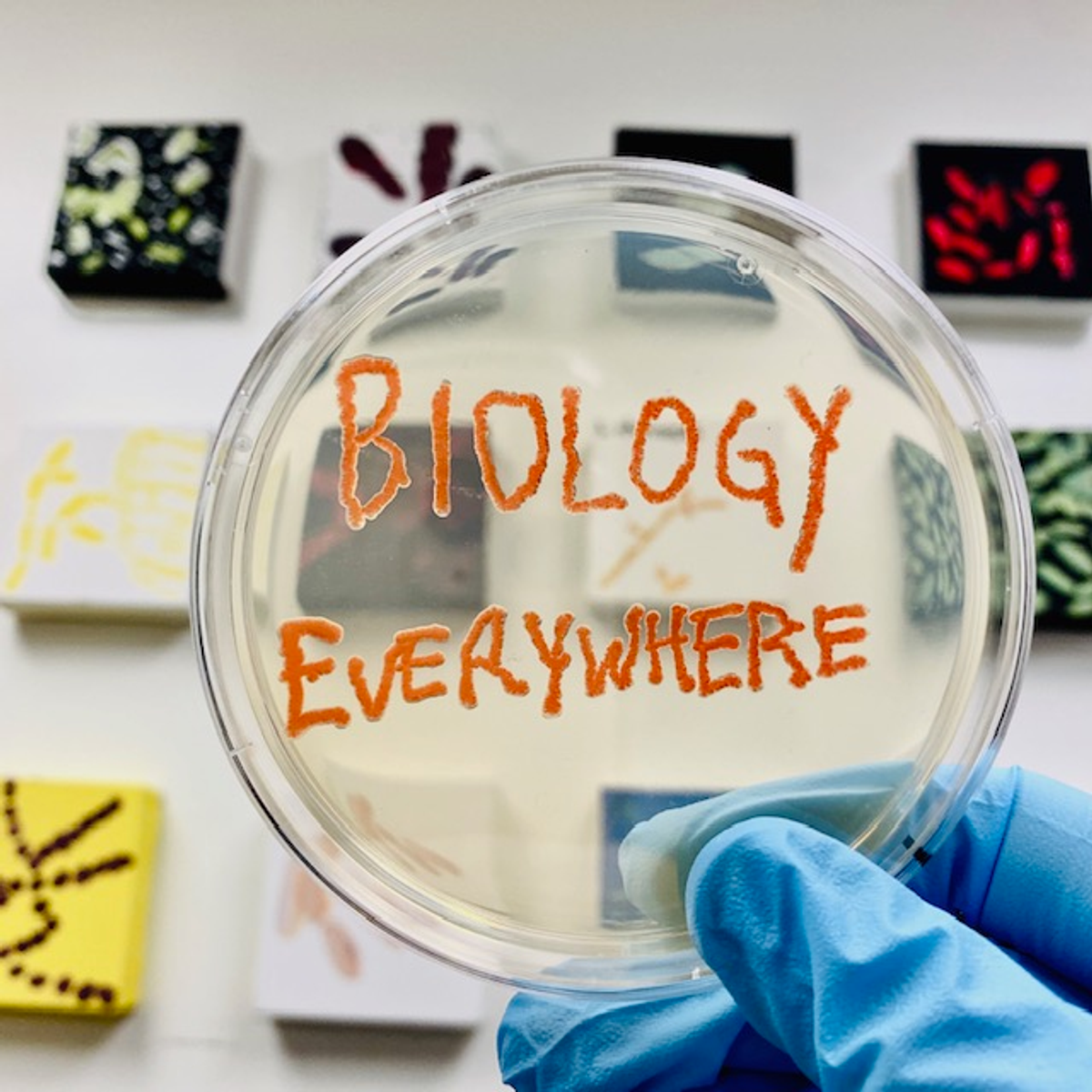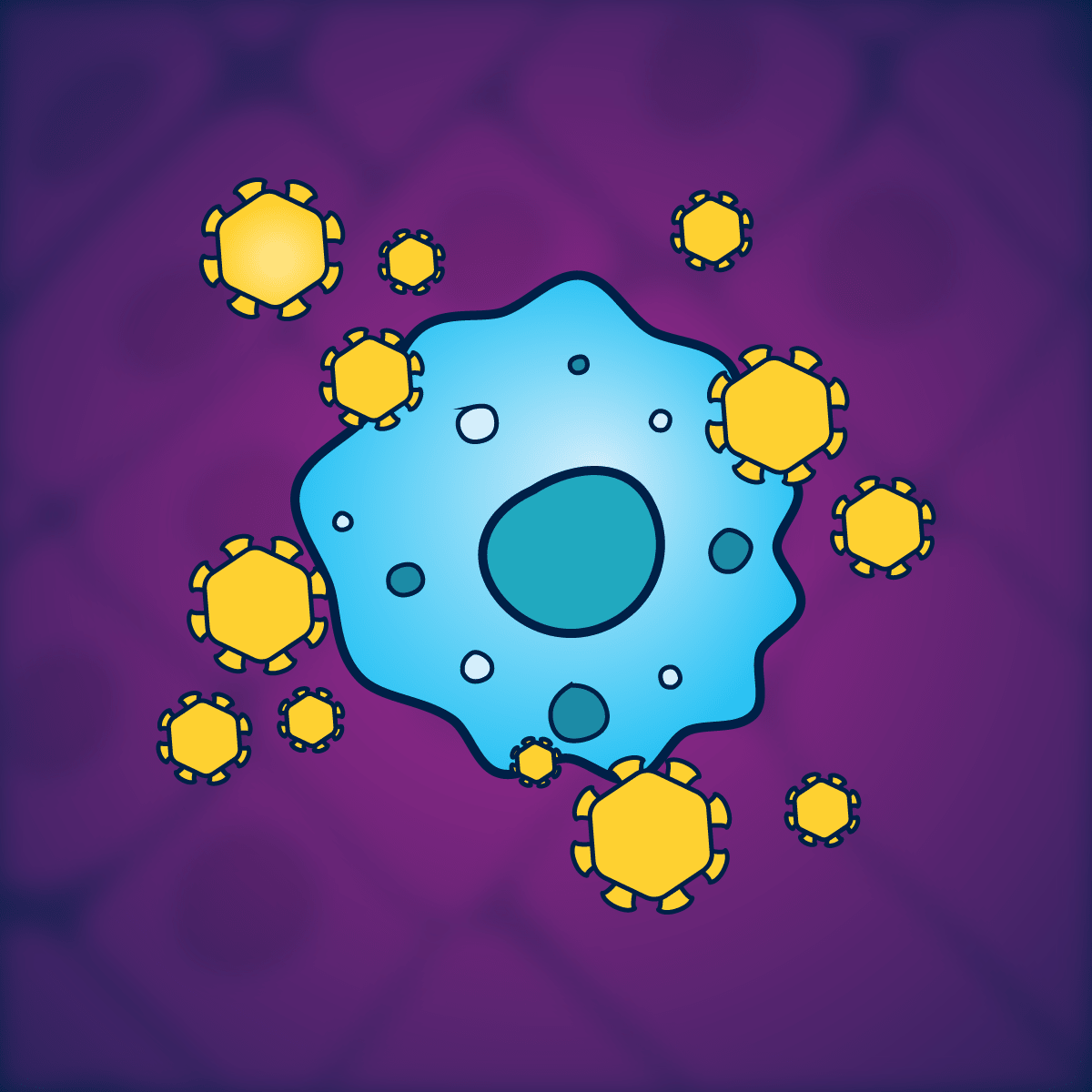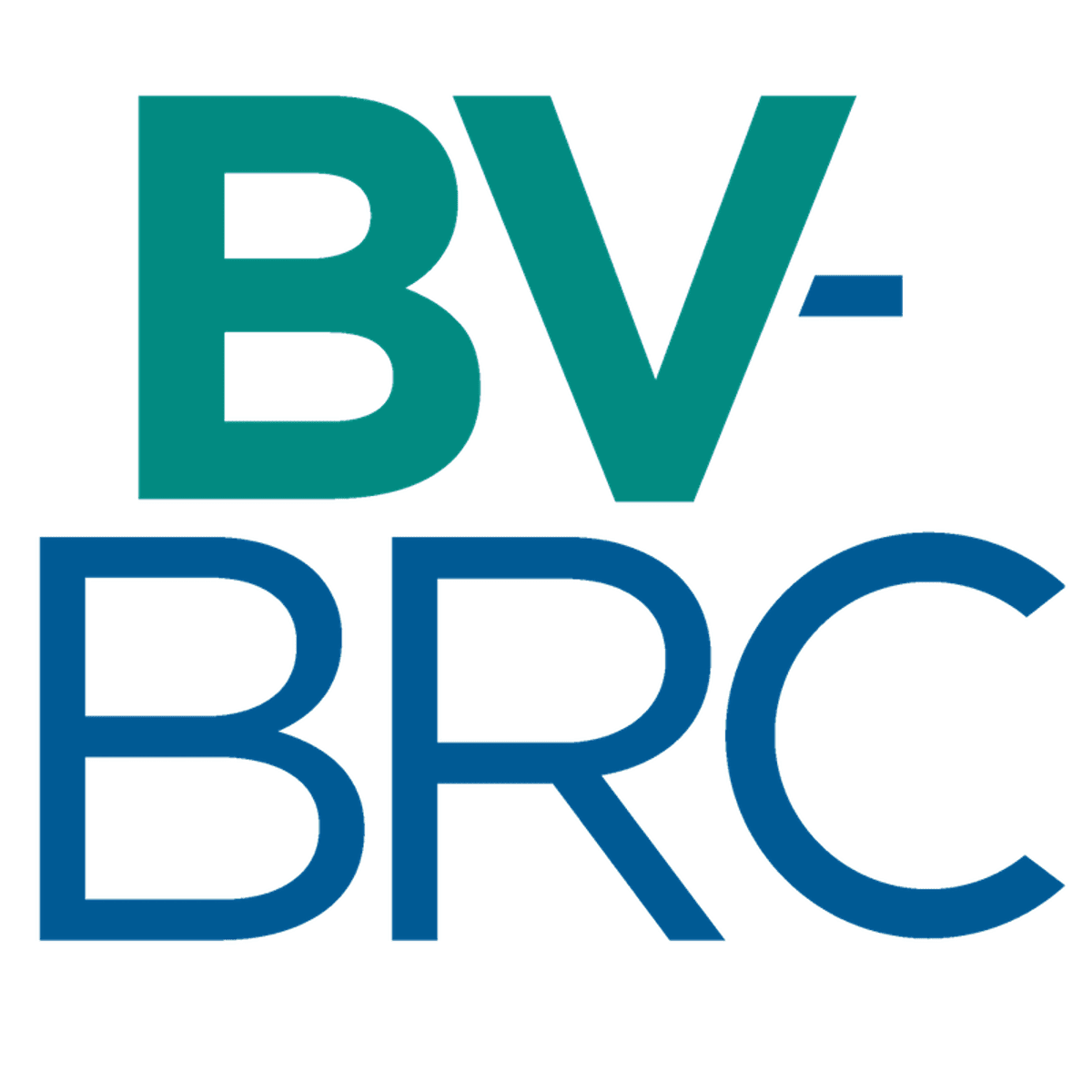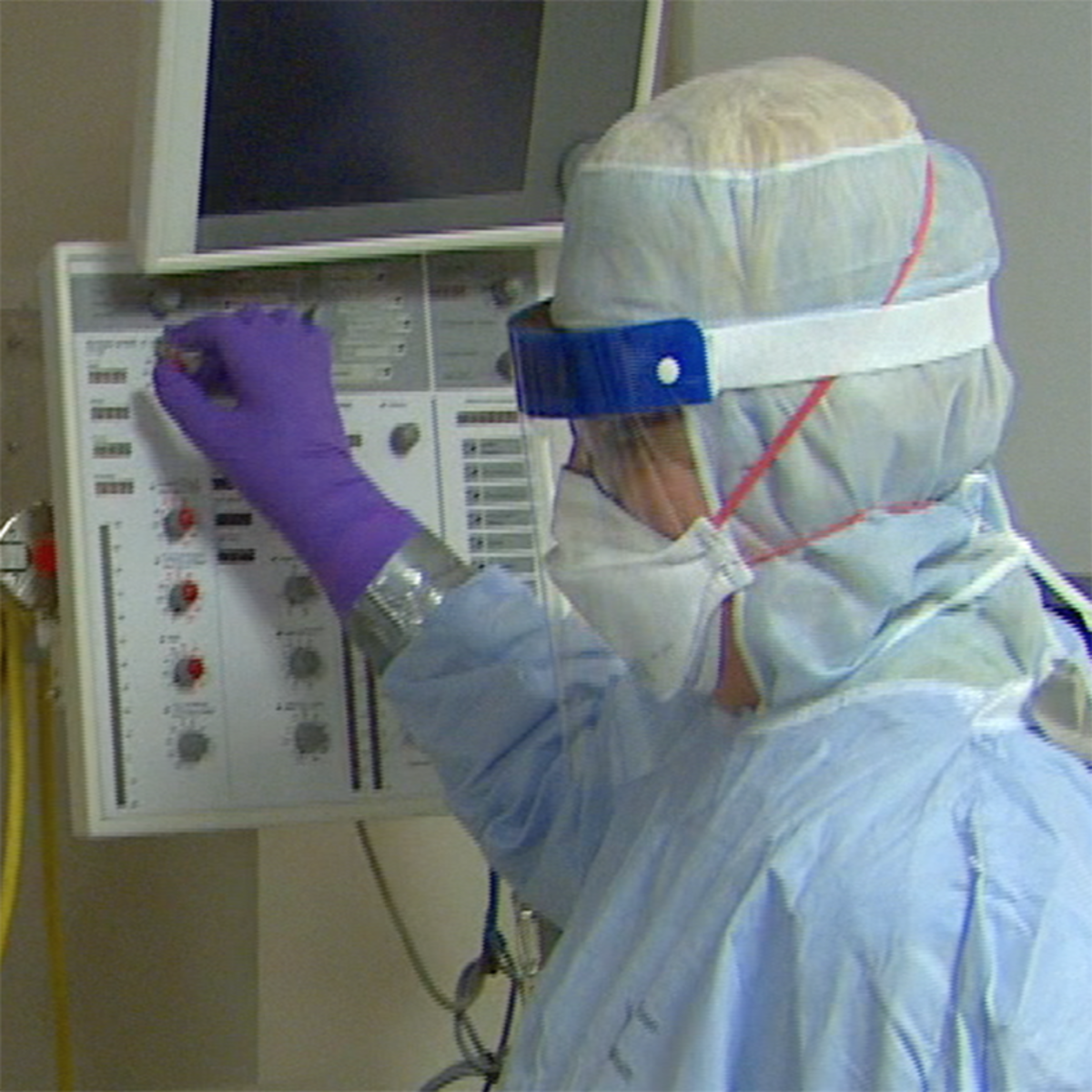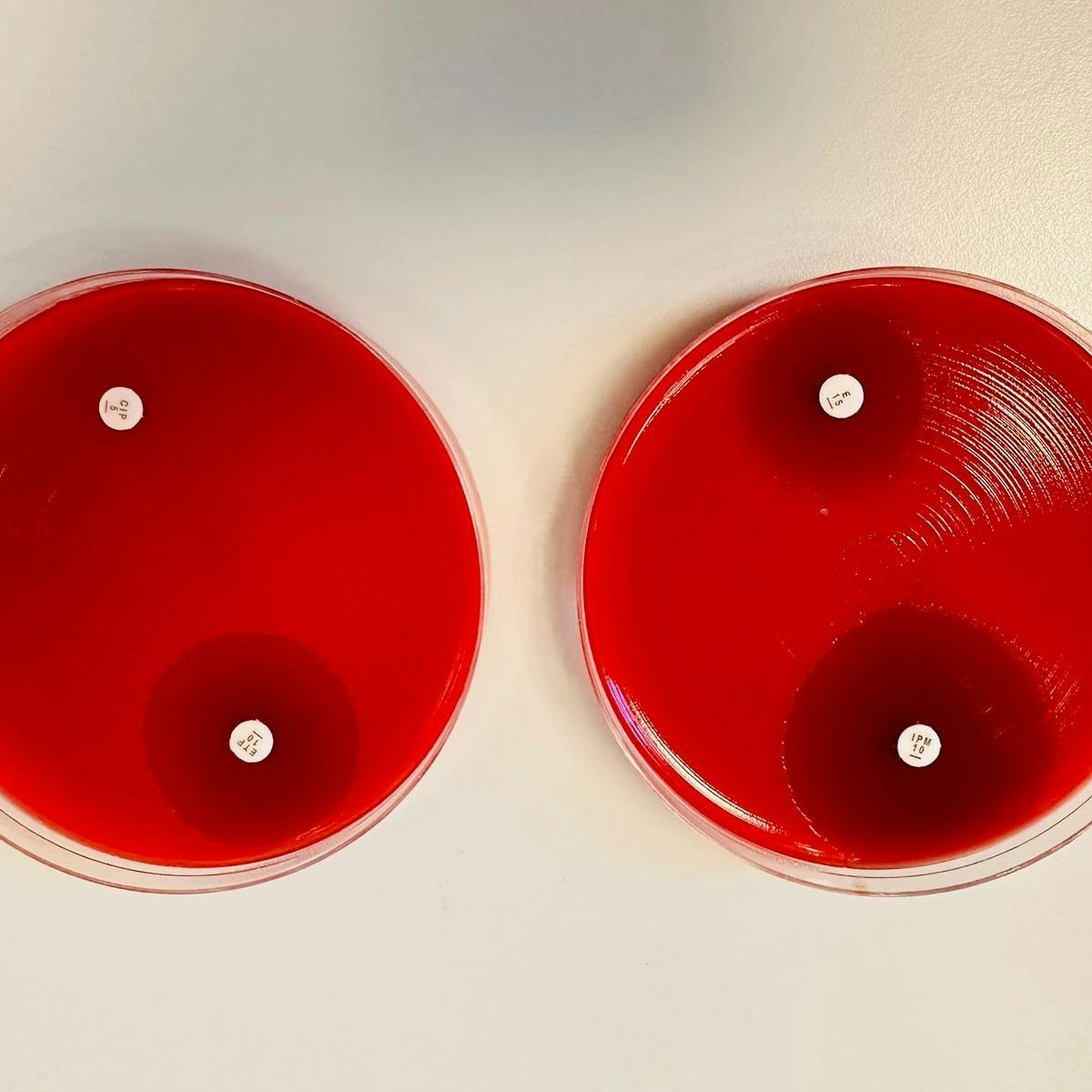Microbiologist
Microbiologist: A Career Exploration
Microbiology delves into the world of microorganisms, the tiny living things often invisible to the naked eye, such as bacteria, viruses, fungi, and protists. Microbiologists are scientists who study these organisms, their characteristics, their interactions with other living things, and their roles in the environment, health, and industry. It's a field that bridges fundamental biology with practical applications affecting nearly every aspect of our lives.
Working as a microbiologist can be incredibly engaging. Imagine identifying a previously unknown microbe, developing a life-saving vaccine, or figuring out how microscopic organisms can help clean up pollution. The field offers diverse opportunities, from conducting cutting-edge research in a laboratory to ensuring food safety or tracking disease outbreaks. It's a career path driven by curiosity and a desire to understand the unseen forces shaping our world.
Introduction to Microbiology as a Career
This section provides a foundational understanding of microbiology, its historical context, and the vital roles microbiologists play across various sectors.
Defining the World of Microbes
Microbiology is the scientific study of microscopic organisms, collectively known as microbes. This includes bacteria, archaea, viruses, fungi, prions, protozoa, and algae. Microbiologists explore their biology, genetics, ecology, evolution, and their interactions with humans, animals, plants, and the environment.
The scope is vast, ranging from molecular mechanisms within a single microbial cell to the complex dynamics of microbial communities (microbiomes) in ecosystems like the human gut or the deep ocean. It's a discipline that underpins many other scientific fields, including medicine, genetics, biochemistry, and environmental science.
Understanding these tiny entities is crucial because they are fundamental to life on Earth. They drive nutrient cycles, support plant and animal health, cause diseases, and are harnessed for numerous biotechnological applications, from producing antibiotics to making cheese and beer.
To grasp the breadth of life studied in microbiology, consider exploring introductory biology courses that cover biodiversity.
Pioneering Discoveries and Milestones
The history of microbiology is marked by groundbreaking discoveries that revolutionized science and medicine. Early pioneers like Antonie van Leeuwenhoek first observed "animalcules" using his handcrafted microscopes in the 17th century. Later, Louis Pasteur disproved spontaneous generation and developed pasteurization and vaccines, cementing the germ theory of disease.
Robert Koch further solidified the germ theory by identifying the specific bacteria causing anthrax, tuberculosis, and cholera, establishing Koch's postulates for linking microbes to diseases. The 20th century brought the discovery of antibiotics by Alexander Fleming, the elucidation of DNA structure, and the development of molecular biology techniques that transformed microbial research.
These historical milestones highlight the profound impact microbiology has had on human health and understanding the living world. Studying these classic discoveries provides context for modern microbiological research and its ongoing evolution.
For those interested in the history and foundations of biological discovery, these resources offer valuable perspectives.
Microbiologists in Action: Diverse Roles
Microbiologists are essential contributors in numerous sectors. In healthcare, clinical microbiologists identify pathogens causing infections, guide antibiotic treatment, and develop diagnostic tests and vaccines. They play a critical role in public health, tracking disease outbreaks and implementing control measures.
In agriculture and food science, microbiologists work to improve crop yields, ensure food safety by detecting contaminants, and develop fermented foods like yogurt and cheese. They study soil microbes crucial for plant growth and animal health.
Environmental microbiologists study microbial roles in ecosystems, bioremediation (using microbes to clean up pollutants), and biofuel production. They might investigate microbes in extreme environments or their impact on climate change. The versatility of microbiology ensures a wide array of impactful career paths.
Educational Pathways to Becoming a Microbiologist
Embarking on a career as a microbiologist typically involves a structured educational journey, starting from foundational science courses and potentially leading to advanced degrees.
Laying the Groundwork: High School Preparation
Aspiring microbiologists should focus on building a strong foundation in science and mathematics during high school. Core subjects like biology, chemistry, physics, and math (especially algebra, calculus, and statistics) are crucial. These courses provide the fundamental knowledge needed for university-level studies.
Engaging in science clubs, participating in science fairs, or seeking volunteer opportunities in labs or related settings can provide valuable early exposure and practical experience. Developing strong analytical thinking, problem-solving, and communication skills is also beneficial.
Consider taking Advanced Placement (AP) or International Baccalaureate (IB) courses in relevant subjects if available. These can demonstrate academic rigor and sometimes provide college credit, giving you a head start in your university studies.
Undergraduate Studies: Degrees and Focus Areas
A bachelor's degree is typically the minimum requirement for entry-level positions like laboratory technician or research assistant. Common undergraduate majors include microbiology, biology, biochemistry, or related fields like molecular biology or biotechnology.
During your undergraduate program, focus on coursework covering general biology, cell biology, genetics, biochemistry, organic and inorganic chemistry, physics, and mathematics. Specialized courses in microbiology, immunology, virology, microbial genetics, and bioinformatics are essential. Laboratory courses are critical for developing hands-on skills.
Many programs offer opportunities for undergraduate research. Participating in research projects under faculty mentorship provides invaluable experience, strengthens your resume, and helps clarify your interest in specific areas of microbiology. This experience is particularly important if you plan to pursue graduate studies.
These foundational courses provide a solid start in understanding biological principles relevant to microbiology.
Advancing Your Knowledge: Graduate Programs and Research
For independent research roles, teaching positions at the university level, or leadership positions in industry, a graduate degree – either a Master of Science (MS) or a Doctor of Philosophy (PhD) – is often required. An MS typically takes 1-3 years and may involve coursework and a research project or thesis.
A PhD is a research-intensive degree, usually taking 4-6 years or more, culminating in a dissertation based on original research. PhD programs prepare individuals for careers as independent researchers, principal investigators, university professors, or high-level scientists in industry or government.
Graduate programs allow for deep specialization in areas like medical microbiology, environmental microbiology, industrial microbiology, virology, immunology, or microbial genetics. Choosing a program involves finding faculty whose research aligns with your interests. Research opportunities are central to graduate training, providing advanced technical skills and critical thinking abilities.
Online Learning and Skill Development
Online learning offers flexible and accessible pathways to acquire foundational knowledge and specialized skills in microbiology, supplementing traditional education or supporting career transitions.
Core Concepts for Self-Directed Learning
For those exploring microbiology independently or looking to supplement their education, online platforms provide a wealth of resources. Key topics to focus on include fundamental biology, cell biology, genetics, biochemistry, and introductory microbiology.
More specialized areas accessible through online courses include molecular biology techniques, virology, immunology, bioinformatics, and understanding the microbiome. Courses often cover theoretical principles, data analysis methods, and case studies.
While online learning excels at delivering theoretical knowledge, remember that microbiology is also a hands-on science. Actively seek ways to complement your online studies with practical experience if possible.
These courses provide a solid foundation in core areas relevant to microbiology, accessible through online platforms.
Bridging Theory and Practice: Online Learning and Lab Skills
A significant challenge for purely online learners in microbiology is gaining practical laboratory skills. Traditional degree programs integrate lab courses, but self-directed learners need to be creative. Look for hybrid programs that combine online coursework with in-person lab sessions, or workshops offered by universities or community colleges.
Some online courses incorporate virtual labs or simulations, which can help visualize techniques and understand protocols. While not a perfect substitute for hands-on experience, these tools can be valuable learning aids. Focus on understanding the principles behind techniques like microscopy, culturing, PCR, and sequencing, even if you can't perform them physically.
Networking with professionals in the field, attending webinars, or joining relevant online communities can also provide insights into practical aspects. If pursuing entry-level lab roles, emphasize your theoretical knowledge gained online while actively seeking opportunities (internships, volunteering) to acquire the necessary hands-on skills.
Explore courses that delve into specific areas like immunology or virology to deepen your theoretical understanding.
Building Your Portfolio with Independent Projects
Demonstrating your skills and initiative is crucial, especially if relying heavily on online learning. Consider undertaking independent projects that showcase your understanding of microbiological concepts and data analysis skills. This is particularly feasible in areas like bioinformatics.
You could analyze publicly available datasets (e.g., genomic sequences, microbiome data), write literature reviews on specific topics, or develop educational materials explaining complex concepts. Projects involving coding (e.g., using Python or R for data analysis) are highly valued in many modern microbiology roles.
Document your projects clearly, outlining the goals, methods, results, and conclusions. Platforms like GitHub can be used to share code and analysis. Including these projects in your resume or portfolio can significantly strengthen your profile when applying for jobs or further education.
These courses offer opportunities to apply skills in data analysis and bioinformatics, relevant for building project portfolios.
Career Progression and Opportunities
A career in microbiology offers diverse pathways, from entry-level technical roles to leadership positions in research, industry, and public health.
Starting Your Journey: Entry-Level Positions
With a bachelor's degree in microbiology or a related field, individuals can typically find entry-level positions such as Laboratory Technician, Research Assistant, or Quality Control Analyst. These roles often involve performing routine laboratory tests, preparing samples, maintaining equipment, and recording data under supervision.
These positions provide essential hands-on experience and exposure to the practical aspects of microbiology. They are common starting points in various settings, including universities, hospitals, government agencies (like the CDC or FDA), pharmaceutical companies, and food production facilities.
While these roles might involve repetitive tasks initially, they are crucial for building foundational skills and understanding laboratory workflows. Strong performance and a willingness to learn can lead to increased responsibilities and opportunities for advancement.
Navigating Mid-Career Paths: Industry vs. Academia
After gaining experience or obtaining an advanced degree (MS or PhD), microbiologists can pursue mid-career roles with greater independence and responsibility. Career paths often diverge between industry and academia, although movement between the two is possible.
In industry (e.g., pharmaceuticals, biotechnology, food, agriculture, environmental testing), roles might include Research Scientist, Product Development Scientist, Quality Assurance Manager, or Field Application Scientist. These positions often focus on applied research, product development, regulatory compliance, or technical support.
In academia (universities, research institutes), common paths include Postdoctoral Researcher positions followed by faculty roles (Assistant, Associate, Full Professor) or Staff Scientist positions. Academic careers typically involve conducting original research, securing grants, publishing findings, teaching, and mentoring students.
Both sectors require strong technical skills, critical thinking, and communication abilities. The choice often depends on personal preferences regarding research focus (basic vs. applied), work environment, funding mechanisms, and career goals.
Reaching the Top: Leadership and Senior Roles
With significant experience and demonstrated expertise, microbiologists can advance to leadership positions. In academia, this might involve becoming a tenured Professor, leading a large research group, or taking on administrative roles like Department Chair or Dean.
In industry, senior roles include Principal Scientist, Research Director, Head of Quality Operations, Regulatory Affairs Director, or executive positions. These roles typically involve setting strategic direction, managing teams and budgets, overseeing large projects, and interacting with senior management or regulatory agencies.
Leadership roles require not only deep scientific knowledge but also strong management, communication, strategic planning, and decision-making skills. Continuous learning and staying abreast of scientific and technological advancements are essential for success at senior levels.
Core Techniques in Modern Microbiology
Proficiency in a range of laboratory and computational techniques is fundamental to the practice of modern microbiology.
Essential Laboratory Methods
Microbiology relies heavily on laboratory techniques to isolate, grow, visualize, and characterize microorganisms. Foundational skills include aseptic technique (preventing contamination), preparing culture media, staining methods (like Gram staining), and light microscopy.
Molecular biology techniques are central to modern research. Polymerase Chain Reaction (PCR) is used to amplify specific DNA sequences, while gel electrophoresis separates molecules by size. DNA sequencing determines the exact order of nucleotides, crucial for identifying organisms and studying their genetics.
Advanced techniques like CRISPR-Cas9 gene editing allow precise modification of microbial genomes. Flow cytometry analyzes cell populations, and various forms of advanced microscopy (e.g., electron, fluorescence, confocal) provide high-resolution images of microbial structures and processes.
The Rise of Bioinformatics in Microbiology
The explosion of genomic and other high-throughput data ('omics') has made bioinformatics an indispensable tool for microbiologists. Bioinformatics involves using computational approaches to analyze large biological datasets.
Key applications include genome assembly (piecing together sequenced DNA fragments), gene annotation (identifying genes and their functions), comparative genomics (comparing genomes of different organisms), phylogenetics (studying evolutionary relationships), and metagenomics (analyzing microbial communities directly from environmental samples).
Microbiologists use specialized software and databases to perform these analyses. Proficiency in programming languages like Python or R, and familiarity with command-line environments (like Linux/Unix), are increasingly valuable skills for analyzing complex microbial data.
These courses introduce essential bioinformatics tools and concepts used in analyzing microbial data.
Safety First: Protocols and Regulations
Working with microorganisms, especially pathogens, requires strict adherence to biosafety protocols to protect laboratory personnel, the community, and the environment. Laboratories are classified into Biosafety Levels (BSL-1 to BSL-4) based on the risk associated with the microbes being handled.
Each BSL specifies required containment practices, safety equipment (like biosafety cabinets), and facility design features. Microbiologists must be trained in standard microbiological practices, proper use of personal protective equipment (PPE), decontamination procedures, and emergency response.
Regulatory compliance is also crucial. Research involving certain agents, genetic modification, or animal/human subjects is often governed by institutional review boards (IRBs), institutional biosafety committees (IBCs), and government agencies (e.g., NIH, CDC, USDA, FDA). Understanding and following these regulations is a core responsibility.
These resources cover essential safety and stewardship practices in handling microbes and related substances.
Current Research Trends in Microbiology
Microbiology is a dynamic field with constantly evolving research frontiers, driven by new technologies and pressing global challenges.
Combating Antimicrobial Resistance (AMR)
The rise of antibiotic-resistant bacteria poses a major global health threat. Microbiologists are at the forefront of research to understand the mechanisms of resistance, track its spread, develop new diagnostic tools, and discover novel antimicrobial drugs or alternative therapies (like phage therapy).
Research also focuses on antimicrobial stewardship – optimizing the use of existing antibiotics to preserve their effectiveness. Understanding how resistance genes emerge and transfer between bacteria is crucial for developing strategies to curb the AMR crisis.
These courses delve into the challenges and science behind antimicrobial resistance.
Exploring the Microbiome and Personalized Medicine
The study of the human microbiome – the vast community of microbes living in and on our bodies – has exploded in recent years. Research is revealing the profound influence of the gut microbiome on digestion, immunity, metabolism, and even brain function and behavior.
Microbiologists are investigating how alterations in the microbiome (dysbiosis) contribute to various diseases, including inflammatory bowel disease, obesity, allergies, and autoimmune disorders. This knowledge is paving the way for personalized medicine approaches, such as using probiotics, prebiotics, or fecal microbiota transplantation to modulate the microbiome for therapeutic benefit.
These resources explore the fascinating world of the human microbiome and its implications for health.
Harnessing Microbes: Synthetic Biology Applications
Synthetic biology aims to design and construct new biological parts, devices, and systems, or redesign existing natural biological systems for useful purposes. Microbes are often the workhorses in synthetic biology due to their relatively simple genetics and rapid growth.
Microbiologists are engineering microbes to produce biofuels, pharmaceuticals, novel materials, and specialty chemicals. They are designing microbial sensors to detect environmental pollutants or disease markers, and developing engineered probiotics for therapeutic applications.
This field combines principles from biology, engineering, and computer science. It holds immense potential for addressing challenges in medicine, energy, materials science, and environmental sustainability, pushing the boundaries of what can be achieved with biological systems.
Ethical and Safety Considerations for Microbiologists
The power to manipulate and study microorganisms comes with significant ethical and safety responsibilities.
Understanding Biosafety Levels (BSL)
As mentioned earlier, Biosafety Levels (BSLs) are crucial for safe laboratory practice. BSL-1 applies to microbes not known to consistently cause disease in healthy adults (e.g., non-pathogenic E. coli). BSL-2 is used for agents associated with human disease that pose a moderate hazard (e.g., Staphylococcus aureus, Salmonella).
BSL-3 is required for indigenous or exotic agents that may cause serious or potentially lethal disease through inhalation (e.g., Mycobacterium tuberculosis, SARS-CoV-2). BSL-4, the highest level, is for dangerous and exotic agents posing a high risk of aerosol-transmitted infections and life-threatening disease with no available vaccine or treatment (e.g., Ebola virus, Marburg virus).
Understanding the specific requirements for each BSL, including facility design, safety equipment (like certified biosafety cabinets and respirators), and operational practices, is non-negotiable for anyone working with infectious agents. Rigorous training and adherence to protocols are paramount.
For more detailed information, resources from organizations like the Centers for Disease Control and Prevention (CDC) provide comprehensive guidelines on biosafety.
Navigating Dual-Use Research Concerns
Dual-use research of concern (DURC) refers to life sciences research that, based on current understanding, can be reasonably anticipated to provide knowledge, information, products, or technologies that could be directly misapplied to pose a significant threat to public health and safety, agricultural crops, or national security.
Examples include research that enhances the virulence or transmissibility of a pathogen, renders a vaccine ineffective, or increases the host range of a pathogen. Microbiologists involved in such research must be aware of the potential risks and adhere to institutional and governmental oversight policies.
Balancing the potential benefits of research (e.g., understanding disease mechanisms, developing countermeasures) with the risks of misuse requires careful consideration, transparency, and adherence to ethical guidelines and security protocols. Open discussion within the scientific community and with oversight bodies is essential.
Ethical Dilemmas in Genetic Engineering
Advances in genetic engineering, particularly technologies like CRISPR, raise profound ethical questions. While these tools offer powerful ways to study gene function, develop therapies, and engineer microbes for beneficial purposes, they also open possibilities for unintended consequences or deliberate misuse.
Ethical considerations include the safety of releasing genetically modified organisms into the environment, the potential for creating more dangerous pathogens, and questions about modifying the human germline. Microbiologists must engage with these ethical debates and conduct their research responsibly.
Professional societies often provide ethical guidelines, and institutional ethics committees review research proposals involving genetic modification. Responsible innovation requires ongoing dialogue about the societal implications of powerful biological technologies.
Global Opportunities for Microbiologists
Microbiology is a global field, offering opportunities for research, collaboration, and employment across different countries and regions.
Variations in Regional Demand
The demand for microbiologists can vary geographically, often influenced by the concentration of specific industries. Regions with strong pharmaceutical and biotechnology sectors (e.g., parts of North America, Europe, East Asia) typically have high demand for research scientists, quality control specialists, and regulatory experts.
Areas facing significant public health challenges related to infectious diseases (e.g., parts of Africa, Southeast Asia, Latin America) may offer opportunities in clinical microbiology, epidemiology, and public health program implementation. Agricultural regions might have more demand for soil or plant microbiologists.
Researching specific geographic areas and their key industries or health priorities can help identify regions with strong job markets aligned with your specialization and interests. International organizations like the World Health Organization (WHO) also employ microbiologists globally.
International Research Collaborations
Science, including microbiology, is increasingly collaborative and international. Many research projects involve partnerships between labs in different countries, facilitated by funding agencies and international consortia. These collaborations allow researchers to share expertise, access unique resources or populations, and tackle complex problems more effectively.
Participating in international collaborations can be a rewarding experience, offering exposure to different research environments and cultures. Opportunities may arise through graduate programs, postdoctoral positions, or established research networks. Attending international conferences is a key way to build connections and learn about collaborative possibilities.
Funding mechanisms specifically support international research exchange and collaboration, fostering a global scientific community working together on shared challenges like infectious diseases or environmental sustainability.
Visa and Certification Considerations
Working as a microbiologist internationally requires navigating visa regulations and potentially meeting specific certification or licensure requirements in the host country. Visa processes can be complex and vary significantly depending on the country, your nationality, the type of position (student, researcher, employee), and the duration of stay.
Some countries may require foreign-trained microbiologists, especially those in clinical roles, to pass specific exams or obtain local certification to practice. Professional organizations in the target country can often provide information on licensure requirements.
It's essential to research these requirements well in advance. Universities, employers, or immigration agencies in the host country are typically the best resources for specific information on visa applications and professional recognition.
Future Outlook for Microbiologists
The field of microbiology is poised for continued growth and evolution, driven by technological advancements and its relevance to critical global issues.
Job Market Projections
The overall employment outlook for microbiologists is generally positive. According to the U.S. Bureau of Labor Statistics (BLS), employment of microbiologists is projected to grow about as fast as the average for all occupations in the coming years.
Growth is expected to be driven by research and development in biotechnology, the need to develop new medicines and treatments for diseases, efforts in environmental protection and bioremediation, and the importance of food safety. Public health initiatives addressing infectious diseases and pandemics also contribute to demand.
Job prospects are often best for those with advanced degrees (PhD) and strong research or specialized technical skills, particularly in high-demand areas like bioinformatics, immunology, and molecular biology.
Automation and Technological Impact
Automation is increasingly impacting laboratory workflows in microbiology. Automated systems for sample processing, culturing, identification, and susceptibility testing can increase efficiency, throughput, and standardization, while reducing manual labor and potential errors.
While automation may change the nature of some tasks, it's unlikely to replace microbiologists entirely. Instead, it frees up scientists to focus on more complex tasks like data interpretation, experimental design, problem-solving, and research strategy. It also creates demand for microbiologists with skills in managing automated systems and analyzing the large datasets they generate.
Staying adaptable and acquiring skills in data analysis, bioinformatics, and understanding automated systems will be important for future career success. The core intellectual contributions of microbiologists – interpreting results, designing experiments, and applying knowledge – remain essential.
Emerging Interdisciplinary Frontiers
Microbiology is increasingly intersecting with other fields, creating exciting new interdisciplinary areas. Astrobiology, for example, explores the possibility of microbial life beyond Earth and studies microbes in extreme environments on our planet as analogs for extraterrestrial conditions.
The intersection of microbiology with materials science is leading to novel biomaterials inspired by microbial structures or processes. Integration with engineering and computer science drives synthetic biology. The study of host-microbe interactions connects microbiology deeply with immunology, neuroscience, and ecology.
These interdisciplinary frontiers offer exciting research avenues and career opportunities for microbiologists who are willing to collaborate across disciplines and embrace new approaches to understanding the microbial world and its interactions.
Frequently Asked Questions
Here are answers to some common questions about pursuing a career as a microbiologist.
What types of industries hire microbiologists?
Microbiologists find employment in a wide range of industries. Major employers include pharmaceutical and biotechnology companies (research, development, quality control), hospitals and clinical diagnostic laboratories (identifying pathogens, guiding treatment), government agencies (e.g., CDC, NIH, FDA, EPA, USDA for research, public health, regulation), and universities and research institutes (research, teaching).
Other sectors include the food and beverage industry (safety, fermentation, quality assurance), agriculture (soil health, plant diseases, animal health), environmental consulting firms (bioremediation, water quality testing), and consumer products companies (e.g., developing antimicrobial products).
The specific roles available vary depending on the industry and the individual's level of education and experience. Exploring different sectors can help you find the best fit for your interests.
Is a PhD necessary for career advancement?
Whether a PhD is necessary depends heavily on your career goals. For independent research positions (e.g., principal investigator in academia or industry) or university faculty roles, a PhD is typically required. It signifies the ability to conduct original research, lead projects, and secure funding.
However, many rewarding and advanced careers are accessible with a bachelor's or master's degree. Roles in quality control/assurance, clinical laboratory science, technical support, sales, regulatory affairs, and some applied research positions often do not require a PhD. Significant experience and specialized certifications can also lead to advancement in these areas.
Consider your long-term aspirations. If leading independent research is your goal, a PhD is usually the standard path. If you prefer more applied, technical, or operational roles, a bachelor's or master's degree combined with relevant experience may be sufficient.
How competitive are academic research positions?
Academic research positions, particularly tenure-track faculty roles at research-intensive universities, are highly competitive. The number of PhD graduates often exceeds the number of available faculty positions, leading to intense competition for limited spots.
Securing a faculty position typically requires a strong publication record from PhD and postdoctoral research, demonstrated ability to obtain research funding (grants), teaching experience, and excellent communication skills. The path often involves multiple postdoctoral appointments before landing a permanent position.
While challenging, academic careers offer intellectual freedom and the opportunity to mentor the next generation of scientists. Competition varies by institution and specific field within microbiology.
Can I transition from wet lab work to computational roles?
Yes, transitioning from traditional "wet lab" (experimental) work to computational roles (bioinformatics, data analysis) is increasingly common and feasible. The growing importance of bioinformatics means there is demand for individuals who understand both the biological context and computational methods.
Making this transition often involves acquiring new skills through online courses, workshops, or dedicated bioinformatics programs. Building a portfolio of computational projects, learning relevant programming languages (Python, R), and gaining familiarity with key bioinformatics tools and databases are crucial steps.
Highlighting your biological background can be an advantage, as it provides context for interpreting computational results. Networking with bioinformaticians and seeking opportunities that bridge both experimental and computational work can facilitate the transition.
What are some common alternative careers for microbiologists?
The skills gained through microbiology training are transferable to various related fields. Common alternative careers include science writing or communication, technical sales or marketing for scientific products, regulatory affairs (ensuring compliance with regulations), patent law (specializing in biotechnology patents), public health policy, and teaching at the K-12 level (often requiring additional teaching certification).
Some microbiologists move into management roles within scientific organizations or transition into data science, leveraging their analytical skills. Others may pursue further education in fields like medicine, veterinary medicine, or genetic counseling.
Exploring these options can be valuable, especially if your interests evolve or if you seek different work environments. Your foundational scientific training provides a strong base for diverse career paths. Consider browsing related careers on OpenCourser for more ideas.
How does microbiology intersect with climate science?
Microbes play fundamental roles in global biogeochemical cycles, including the carbon and nitrogen cycles, which are central to climate science. Environmental microbiologists study how microbial activities (like producing or consuming greenhouse gases such as methane and nitrous oxide) influence climate.
Climate change, in turn, impacts microbial communities and their functions in soil, oceans, and freshwater systems. Research investigates how changing temperatures, precipitation patterns, and ocean acidification affect microbial ecosystems and the feedback loops between microbes and climate.
Furthermore, microbes are being explored for climate solutions, such as developing microbial processes for carbon capture or biofuel production. Understanding these intricate connections is crucial for predicting and mitigating climate change impacts.
A career as a microbiologist offers a path to explore the unseen world that shapes our planet and our health. It requires dedication, rigorous training, and a persistent curiosity. While challenges exist, the potential to contribute to scientific discovery, improve human health, and address environmental issues makes it a deeply rewarding field for many. Whether you pursue traditional research, industry applications, or related paths, the journey begins with a solid foundation in science and a fascination with the microscopic realm. OpenCourser offers many resources, from biology fundamentals to specialized topics, to help you on your way. We encourage you to explore further and discover if this exciting field is the right fit for you.








